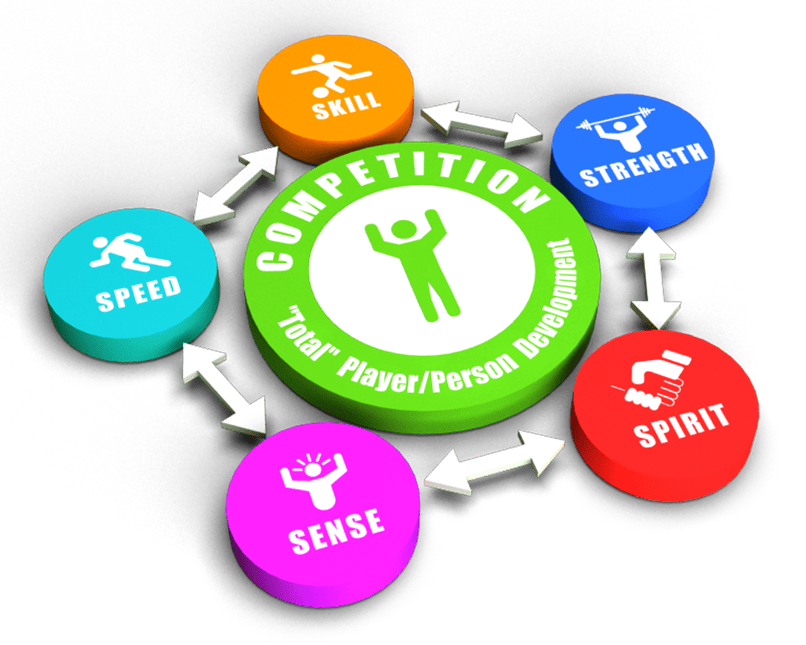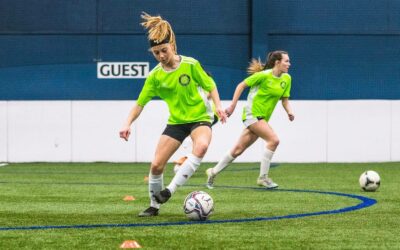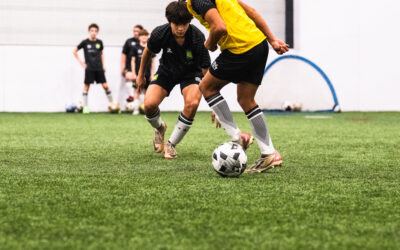FACT: There are not enough skillful difference making players in the game.
Skill is not god given.
Players develop habits that are encouraged.
This means your soccer player CAN become a skillful player if the right carrot is at the end of the stick.
And it’s dead easy for your player to learn useful skills and apply them when the conditions are set.
We have a huge responsibility, as teachers, to develop players on the field but also off the field.
So, what does skill mean in soccer?
“Skill is having the ability to control the ball effectively.”
Once the control and skill is embedded (automated), your player will find the confidence to play faster.
Eventually, they can creatively find solutions to unique situations because they have the mental bandwidth to think outside the box.
Core Skills
Ball mastery – developing control with all surfaces of both feet and most body parts. This includes juggling and developing a tremendous 1st touch. There are 99 skills classified here. Encourage enjoyment with the ball and this will never be a chore for your player.
Ball striking – passing and shooting with various parts of both feet from the ground and in the air.
1v1 dribbling – using creativity and specific body movements, with close ball control, to create separation from the opponent to retain possession and create goal scoring chances.
Hard Skills
Your coach can set conditions for players to learn ‘Hard’ skills through repetition. These skills are more straight forward. The coach can explain the skill, demonstrate the skill so your player can practice the skill. Repeat.
Dribbling skills, receiving and passing, ball striking and shooting activities can be replicated so your player can practice perfecting their technique (skill).
Soft Skills
More challenging for players to learn because it requires good technique (skill), speed and intelligence to carry out the task.
Knowing why a skill works, when and how to use the skill and effectively doing it is the next task.
Understanding the timing and rhythm of soccer situations takes 1000’s of hours of trial and error. This is why we encourage players to simply play. Find friends in the neighborhood or search for groups who can meet up. Learning through free play is most important and the game will naturally teach players what works and what doesn’t.
Reading the space and time available, based on where the opponents, teammates and the ball are.
Example: Getting the weight of the pass just right and placing it on the better foot of a teammate at the right time before the opponent can steal the ball is much more difficult to replicate, as no two situations are ever the exact same.
Life Skills Beyond the Game
Listening Skill
Your player will need to be able to absorb and comprehend information from coaches and teammates to become an effective player.
Concentration Skill
Focus on the process of learning and applying the information is another skill that’s crucial to your players longevity in the game.
Reaction Skill
Adapting and evolving to any situations are signs of a competent player who can process information quickly.
Social Skill
Communication, cooperation and teamwork are skills that will allow your player to be their best self.
Skill is only one of five values we believe a Coerver Kid must possess to achieve Total Development.
When your player can tie these skills together, their belief will soar!




